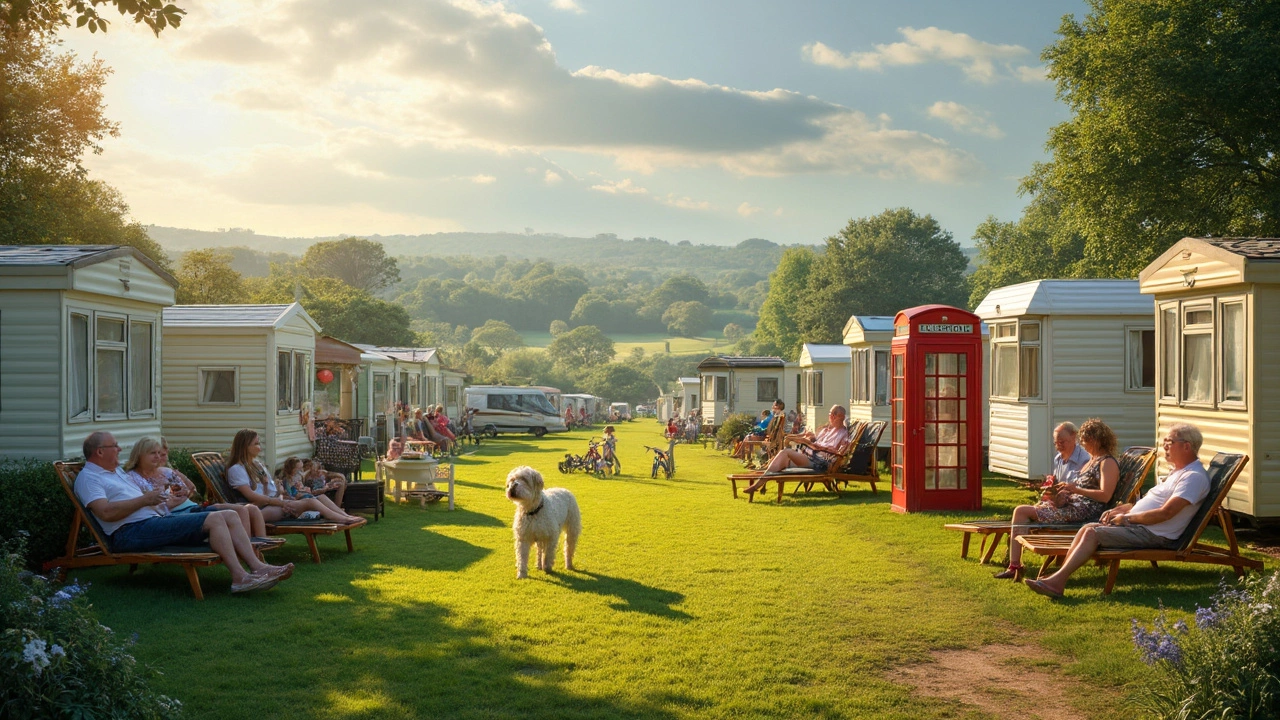Residential Parks Made Simple for Motorhome travellers
If you’re new to motorhome trips, you’ve probably heard the term "residential park" and wondered if it’s worth a stop. In short, a residential park is a private site that offers longer‑term pitches, utilities and sometimes extra services like laundry or Wi‑Fi. They’re a step up from a basic campsite, but still cheaper than a hotel. Below we break down what you need to know before you book your next stay.
What you get at a residential park
Most residential parks give you a solid electricity hook‑up (usually 13‑amp), fresh water, and a proper waste‑water drain. Some even have on‑site showers, communal kitchens and a small shop for groceries. Because they cater to longer visits, the pitches tend to be wider and have level ground – perfect for setting up a motorhome without fighting a hill.
Security is another plus. Many parks have gated entrances, CCTV and a night‑time security guard, which gives you peace of mind when you’re parked for a few days or even weeks. If you’re travelling with kids, you’ll also find playgrounds or open green areas where they can run safely.
How to pick the right residential park
Start by checking the location. If you’re heading to Teesside, look for parks near the coast or the countryside you want to explore. Proximity to attractions saves you fuel and lets you enjoy more of the area.
Next, compare prices. Residential parks usually charge per night, but many offer weekly or monthly discounts. A typical price in the UK ranges from £25 to £45 per night for a motorhome pitch with full hookups. If you’re staying longer, ask about a bulk‑stay rate – you can often shave off 10‑20%.
Read reviews. Sites like TripAdvisor or motorhome forums give real‑world feedback about cleanliness, staff friendliness and any hidden fees (like extra charges for extra people or pets). A park with solid reviews saves you headaches later.
Finally, check the rules. Some residential parks limit the size of your vehicle, prohibit pets, or have quiet hours after 10 pm. Knowing these ahead of time helps you avoid surprise fines.
When you’ve narrowed down a few options, give the park a quick call. Ask about the exact hook‑up types, whether they provide a dump point, and if they have a backup power plan for outages. A short chat can reveal a lot about the park’s reliability.
In short, residential parks give you a comfortable base, reliable utilities and a safer environment for longer motorhome trips. They’re a great middle ground between wild camping and a pricey hotel, especially if you’re touring Teesside’s beautiful coast and countryside.
Ready to book? Head to the Teesside Motorhome Adventures site, filter by "residential parks" and start planning your next adventure today.
Longest You Can Stay in a Caravan Park: What to Know
Ever wondered how long you can actually stay in a caravan park? This article breaks down the rules and real-life limits for extended stays. We’ll look at different park policies, local laws, and how to tell if a park is suited for full-time or just holiday visits. You'll also find tips for finding the best long-term spots and avoiding common headaches. Whether you're road tripping for months or searching for a temporary home, you'll get answers you can actually use.
